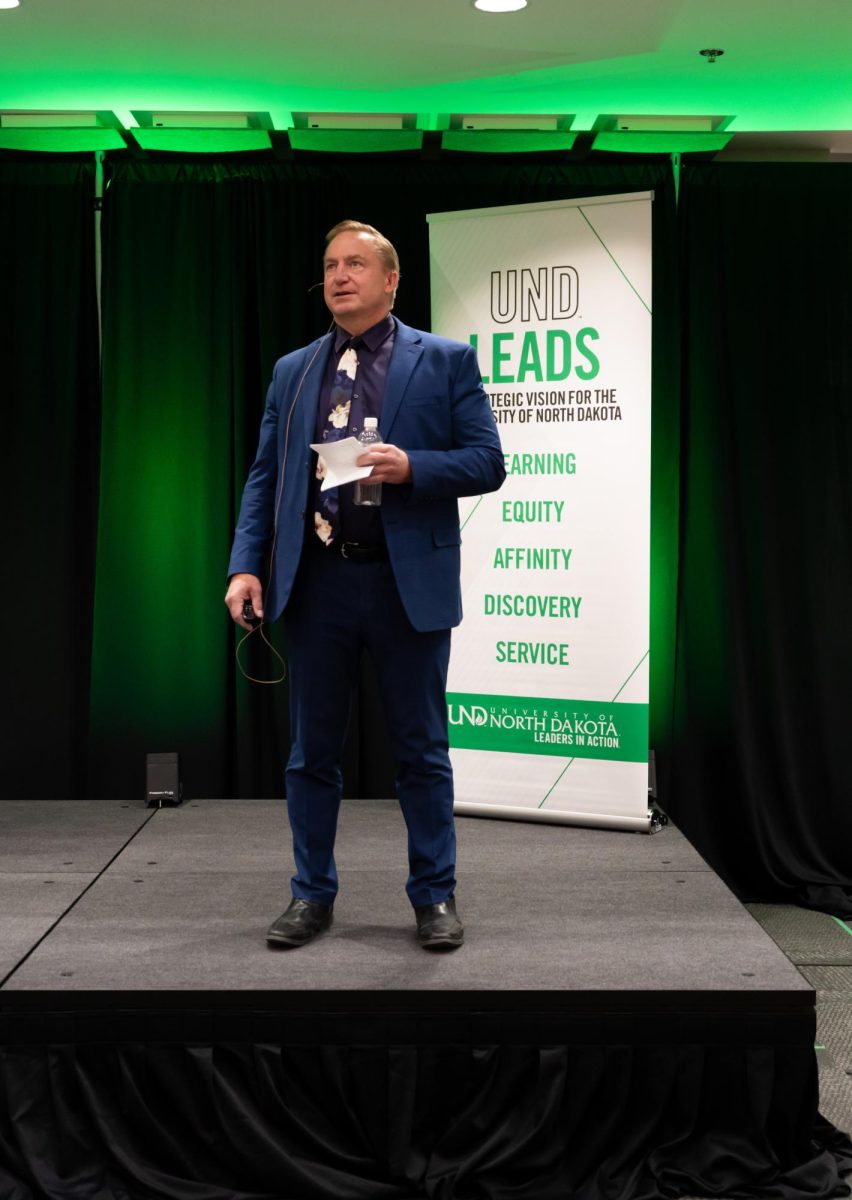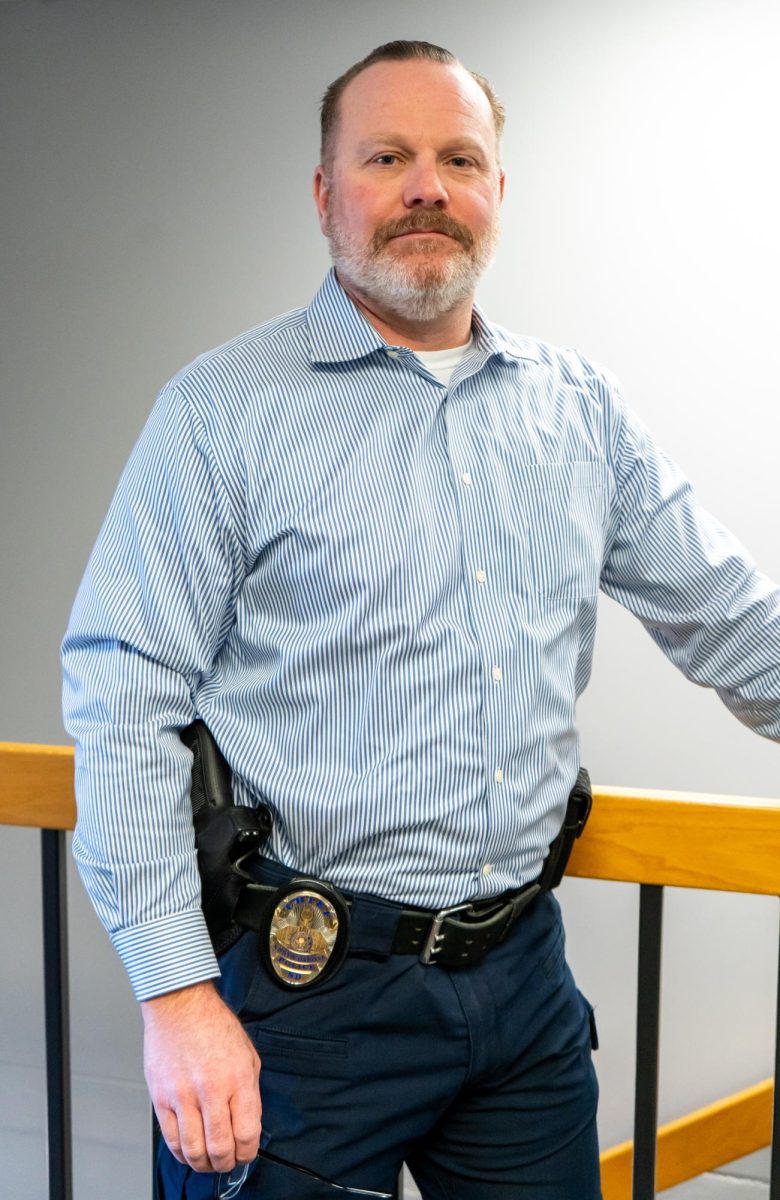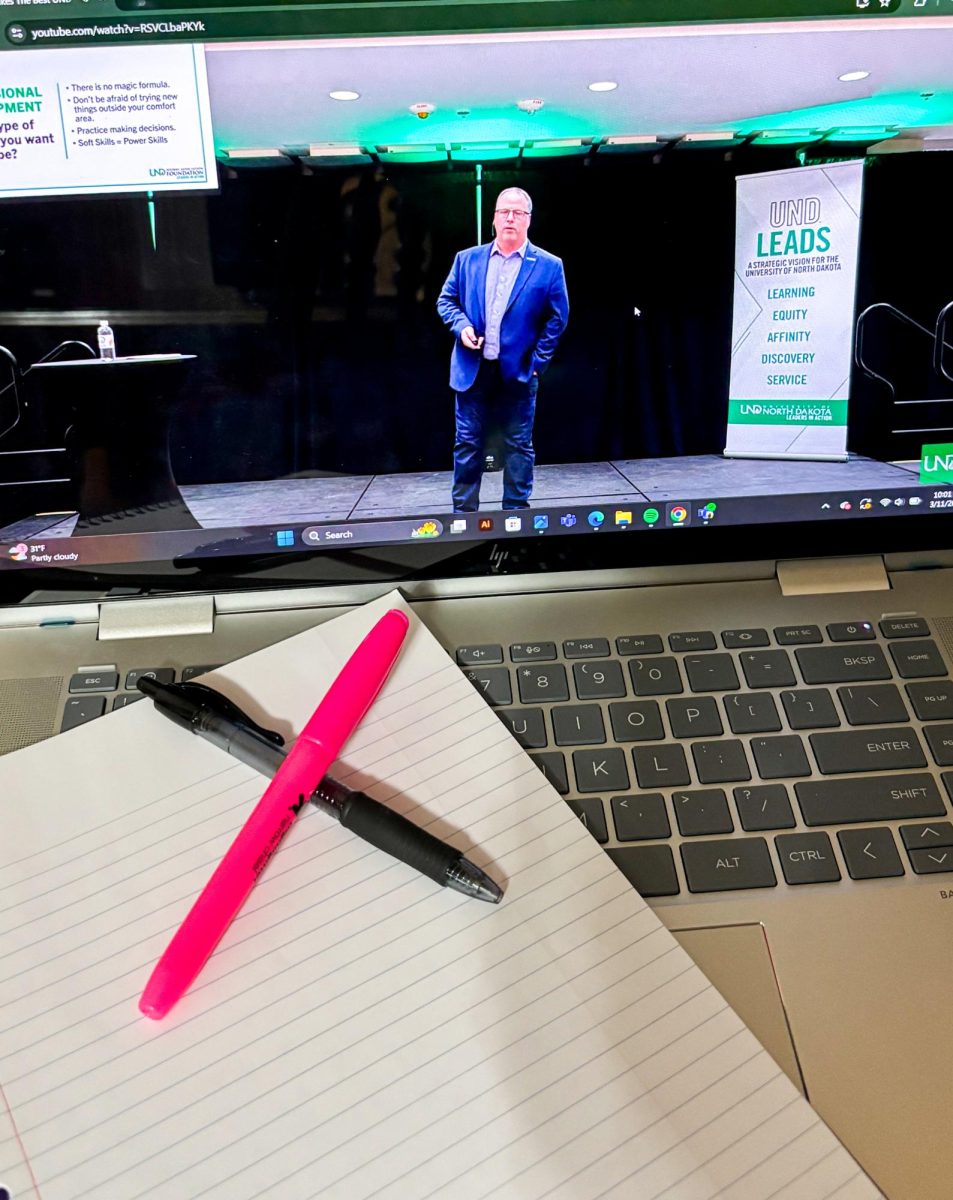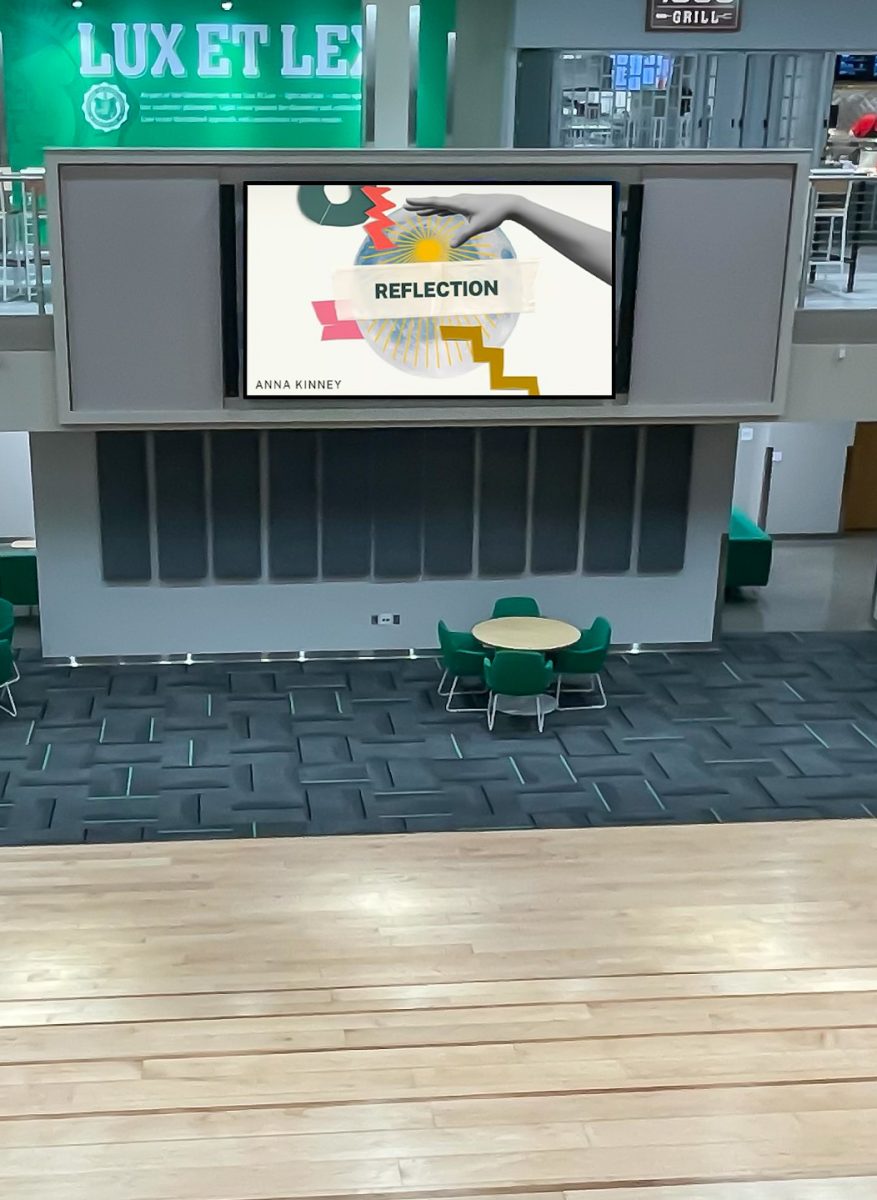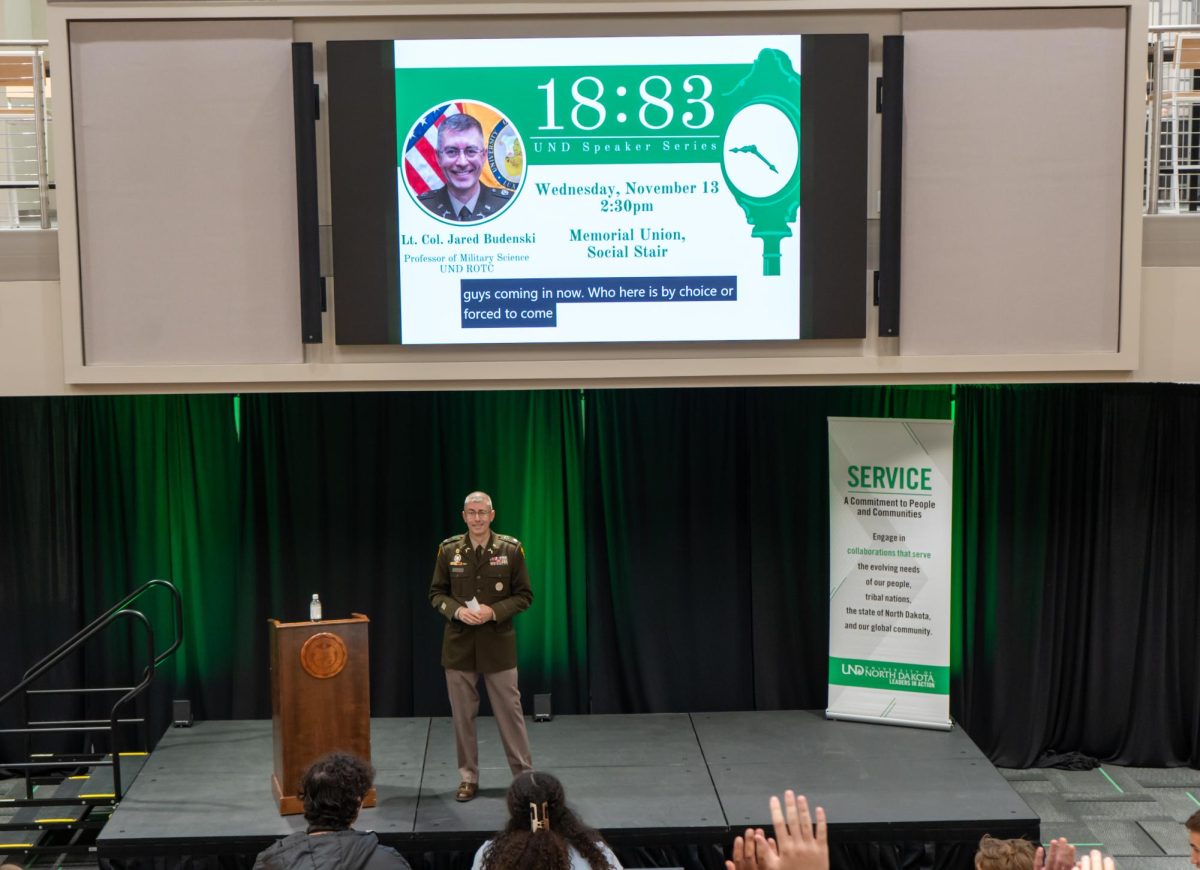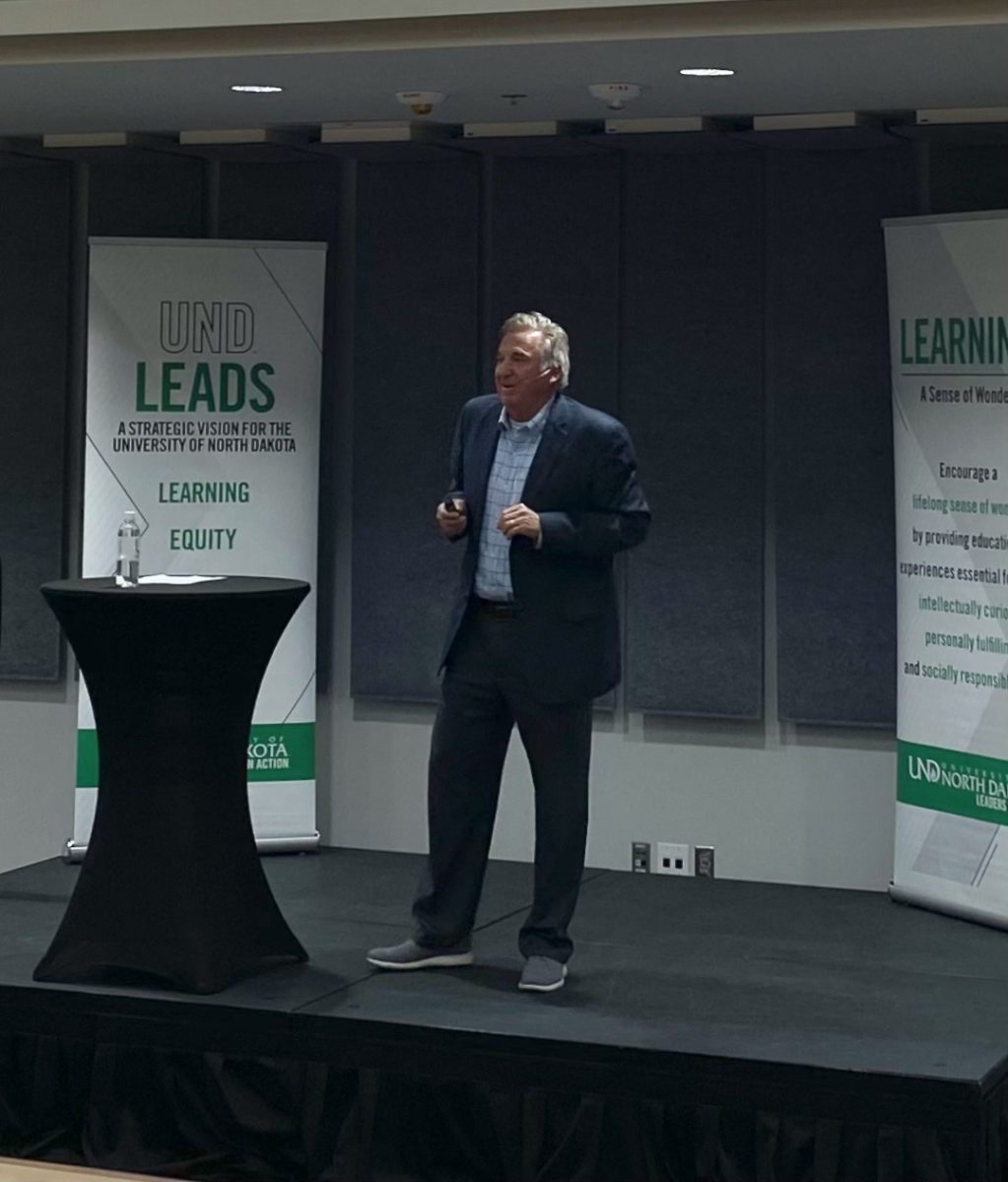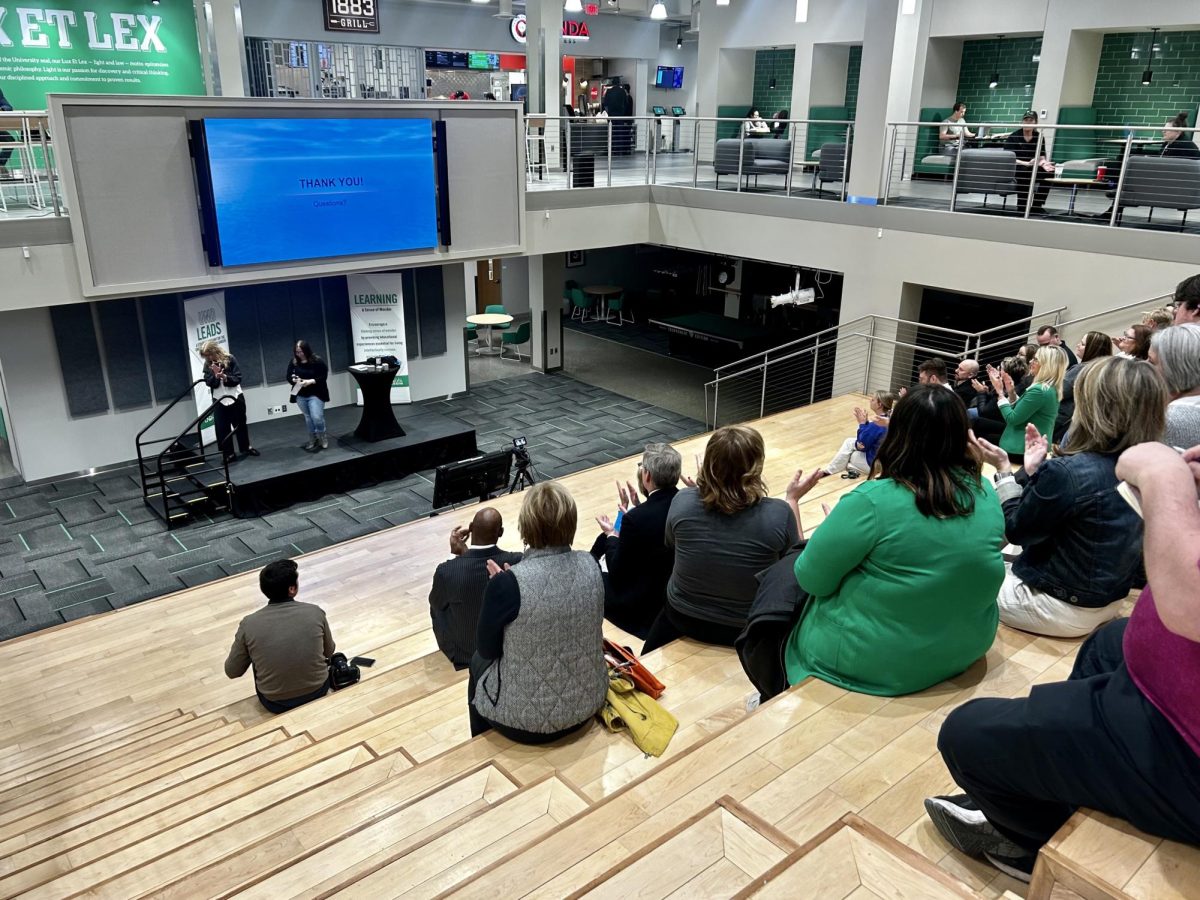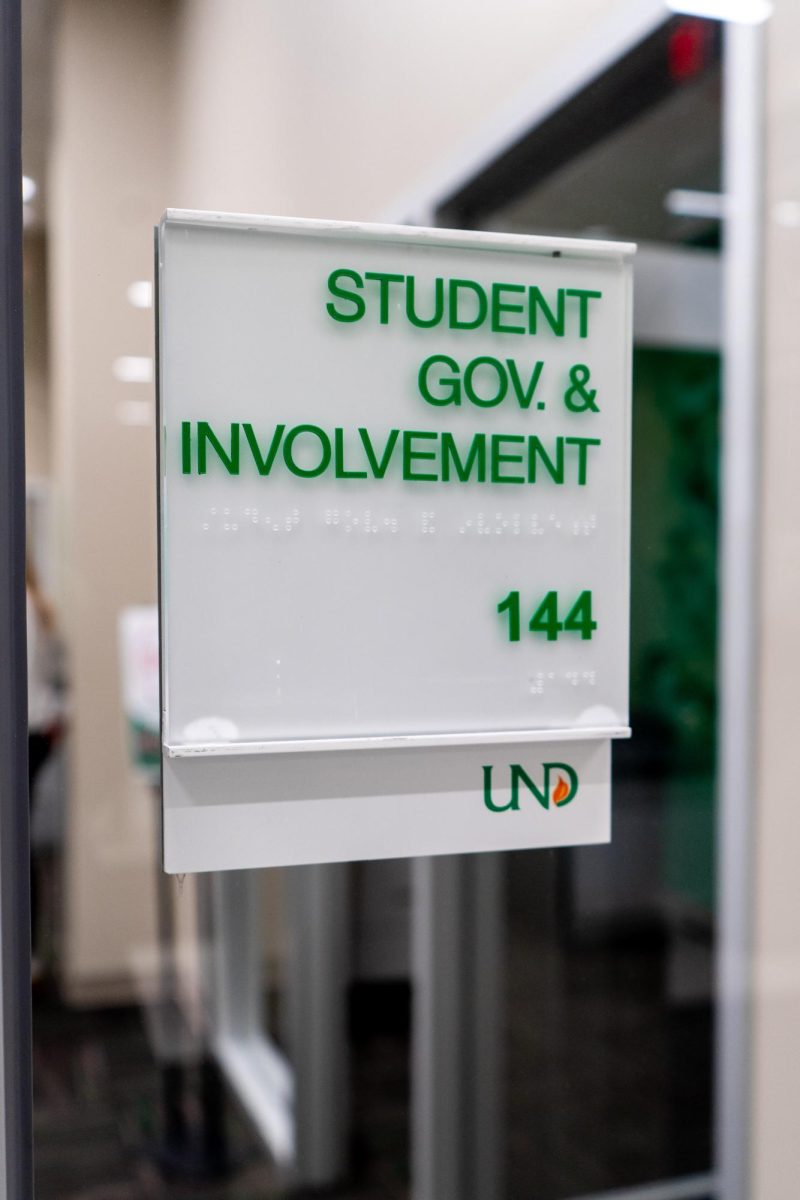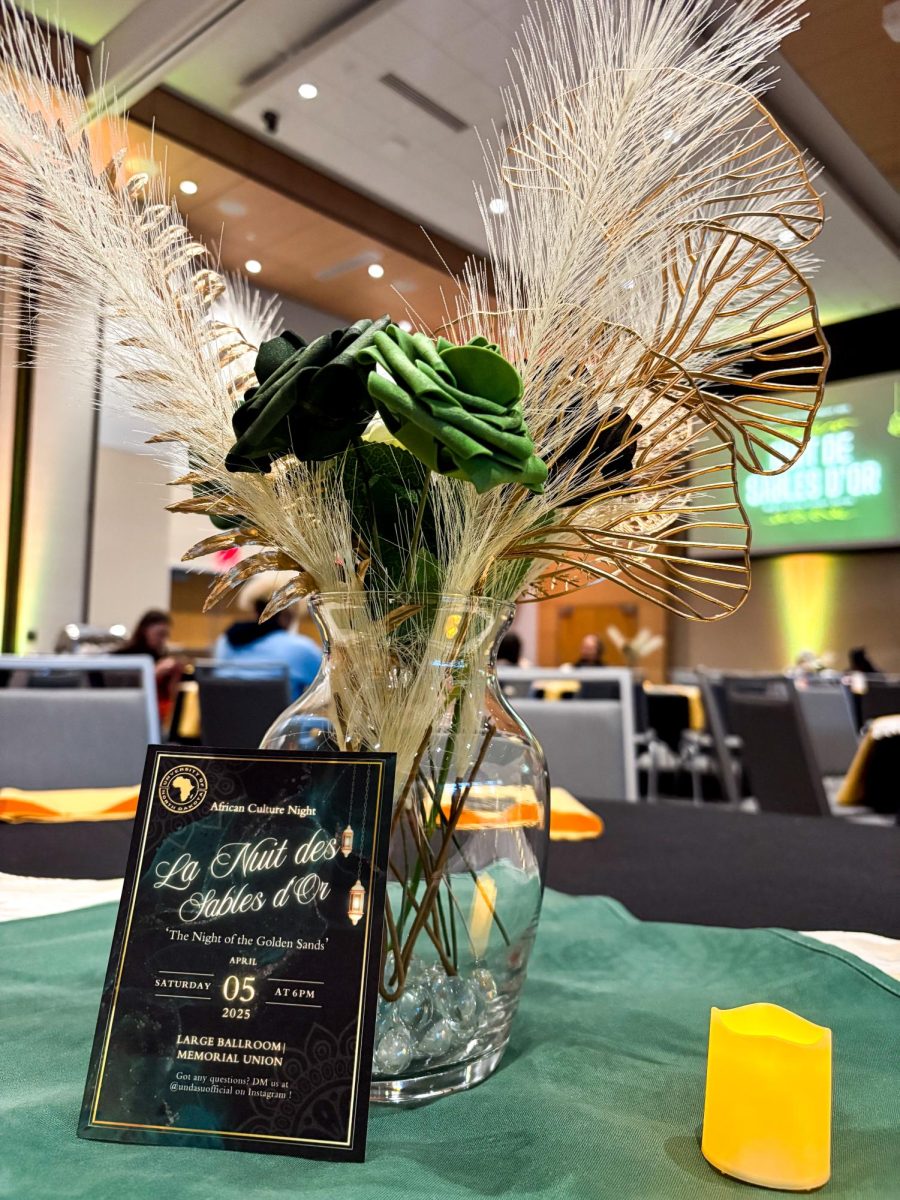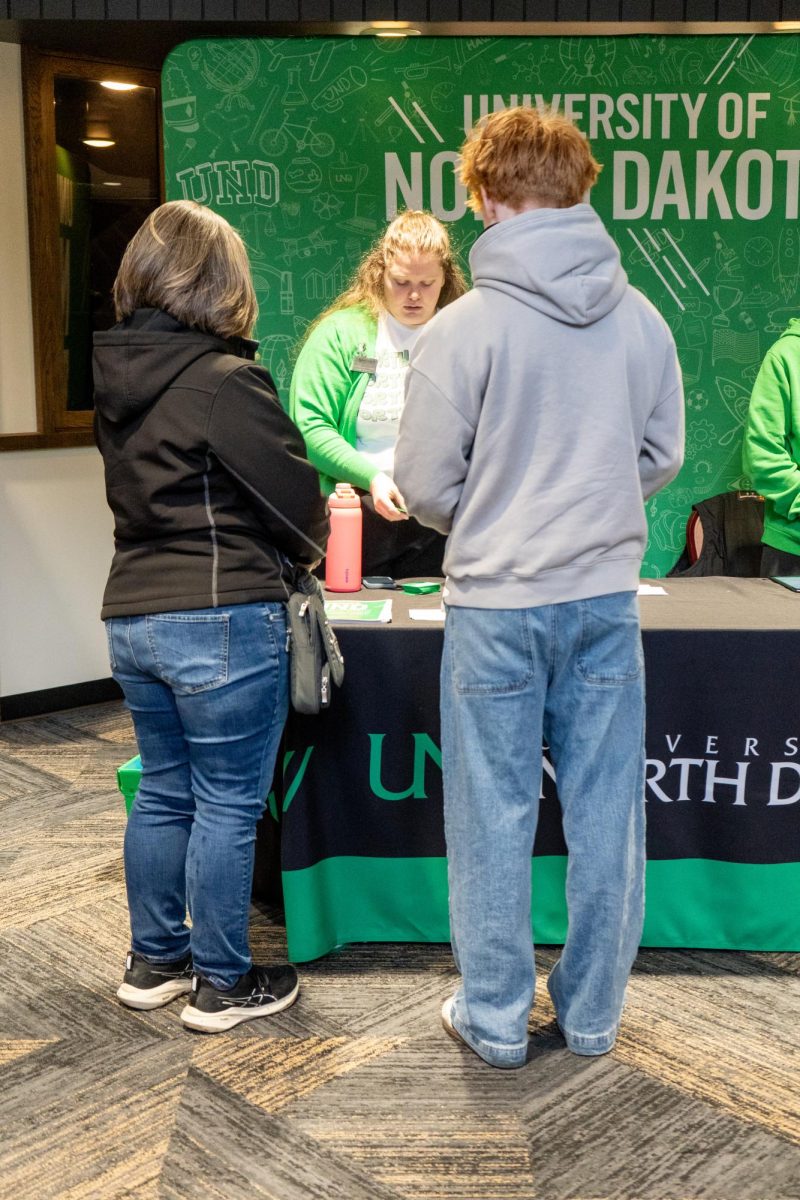The University of North Dakota’s 18:83 Speaker Series continued with guest speaker Dr. Chris Nelson, UND’s Dean of the School of Graduate Studies, Wednesday, October 30, at the Memorial Union’s Social Staircase. The 18:83 Speaker Series brings leaders to share their thoughts on leadership and development. Inspired by UND’s founding year, 1883, these snack-size presentations occur for 18 minutes and 83 seconds, or 19 minutes and 23 seconds, almost every week.
Before arriving at UND, Nelson received his doctorate in English from the University of Illinois at Urbana-Champaign. Over his 19-year tenure at UND, Nelson has assumed the positions of associate professor and director of graduate studies in the English department and Associate Dean and Dean of the School of Graduate Studies, the latter being his current role. Under his leadership, Nelson has implemented 25 accelerated degree programs and observed record-setting graduate enrollment.
Accompanied by scenes from Calvin and Hobbes, a comic strip that was published in newspapers from 1985 to 1995, Nelson spoke about four power skills: learning agility, change agility, communication agility, and people agility.
“I’m going to set the stage with one of our alums who gave a speech at December commencement two years ago, Angie Freeman,” Nelson said. “She talked about four types of agility, which she also called power skills. So, I am going to frame this in the terms that she put forward to us, because I found them incredibly compelling.”
The first term Nelson explores is learning agility. Learning agility refers to contentious learning, which means being open to learning all the time and the idea that someone cannot know everything.
“Here, we have Calvin, who’s not terribly thrilled about school. He wants to learn only about what he wants to learn about, dinosaurs,” Nelson said. “In a leadership position, it can’t just be about dinosaurs or about the one topic you most like. You’re going to spend your days doing a lot of different things.”
As Nelson concludes describing learning agility, he begins to define a different power skill, change agility. When problems approach, maintaining a mindset of balancing multiple factors while understanding the issue to make decisions is how someone can show change agility.
“Here, we got Calvin again. Calvin thrives on change, or so he says. What it turns out to be is he thrives on making other people change,” Nelson said. “That’s not necessarily how we want to approach leadership. You can manage the change in a way that is not simply reactive.”
Next, Nelson speaks about communication agility. To possess communication agility, someone needs to have the ability to communicate the important aspects required to move forward from one’s perspective, acknowledge their own communication discrepancies, learn about their audience, and listen.
“For those of you who don’t know, Susie is Calvin’s nemesis, but also his crush. Susie is frustrated with Calvin; he’s not doing his work. When Susie starts yelling, he hears alien noises and turns into a spaceman spiff. Productive conversation, right?” Nelson said. “Part of being persuasive in communication is learning about your audience, learning about who you’re talking to, understanding their needs, interests, goals, fears, and worries.”
To conclude with the fourth power skill, Nelson refers to people agility. People agility consists of an understanding that there is no one-size-fits-all approach to leading because the individuals that make up a team are all different and the extent to which someone can adapt to empathy.
“So, Calvin says he is a natural leader; of course he is. Where does he end up in the last frame there? It looks to me like he is in a swamp, all filthy and covered in mud. Hobbes took off because all Calvin did was say, ‘we’re going this way.’ Nothing else, right?” Nelson said. “This doesn’t work too well. By leading other people, unless you understand what makes them tick to some degree, you’re not going to work well with them.”
For more leadership and development advice, the 18:83 Speaker Series occurs every Wednesday at 2:30 p.m. at the Memorial Union’s Social Staircase. The speakers proceeding Nelson are Lt. Col. Jared Budenski, professor of military science at UND’s Reserve Officer Training Corps, Mara Jiran, CEO of Spectra Health, and Anna Kinney, coordinator of the University Writing Program at UND.
Dylan Campbell is a Dakota Student General Reporter. He can be reached at dylan.campbell@und.edu.


